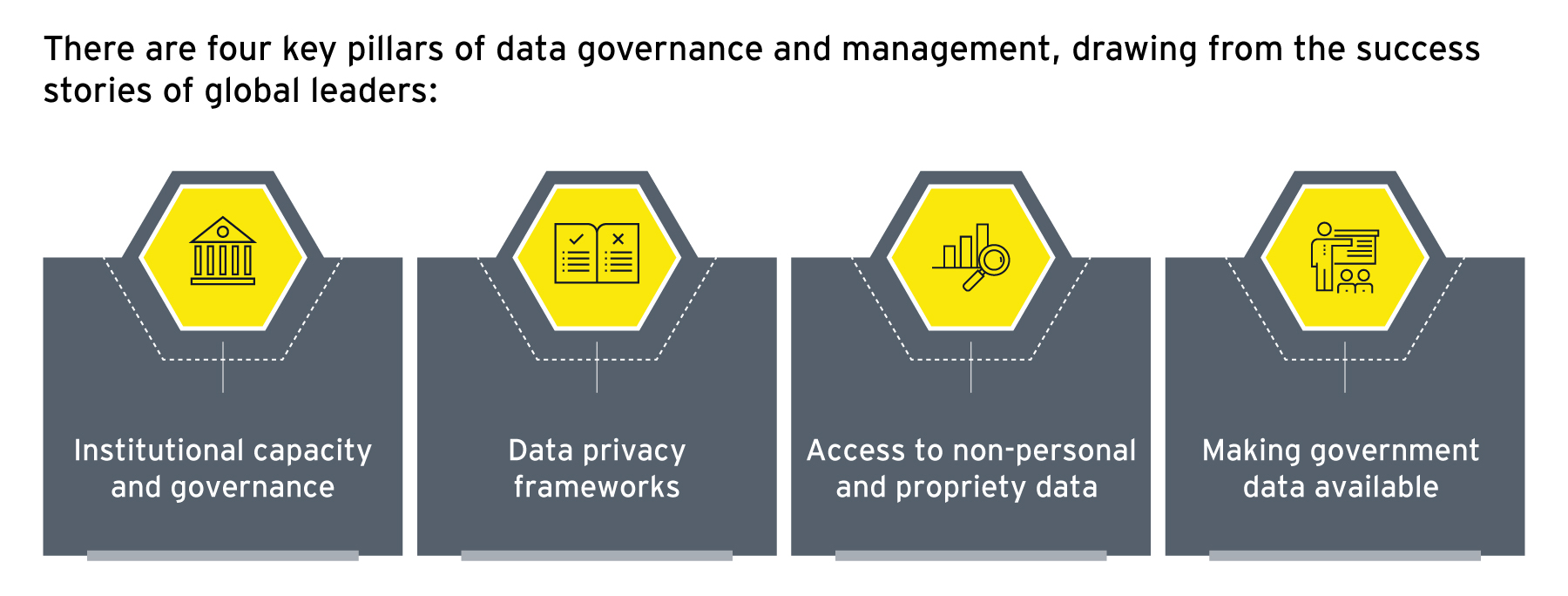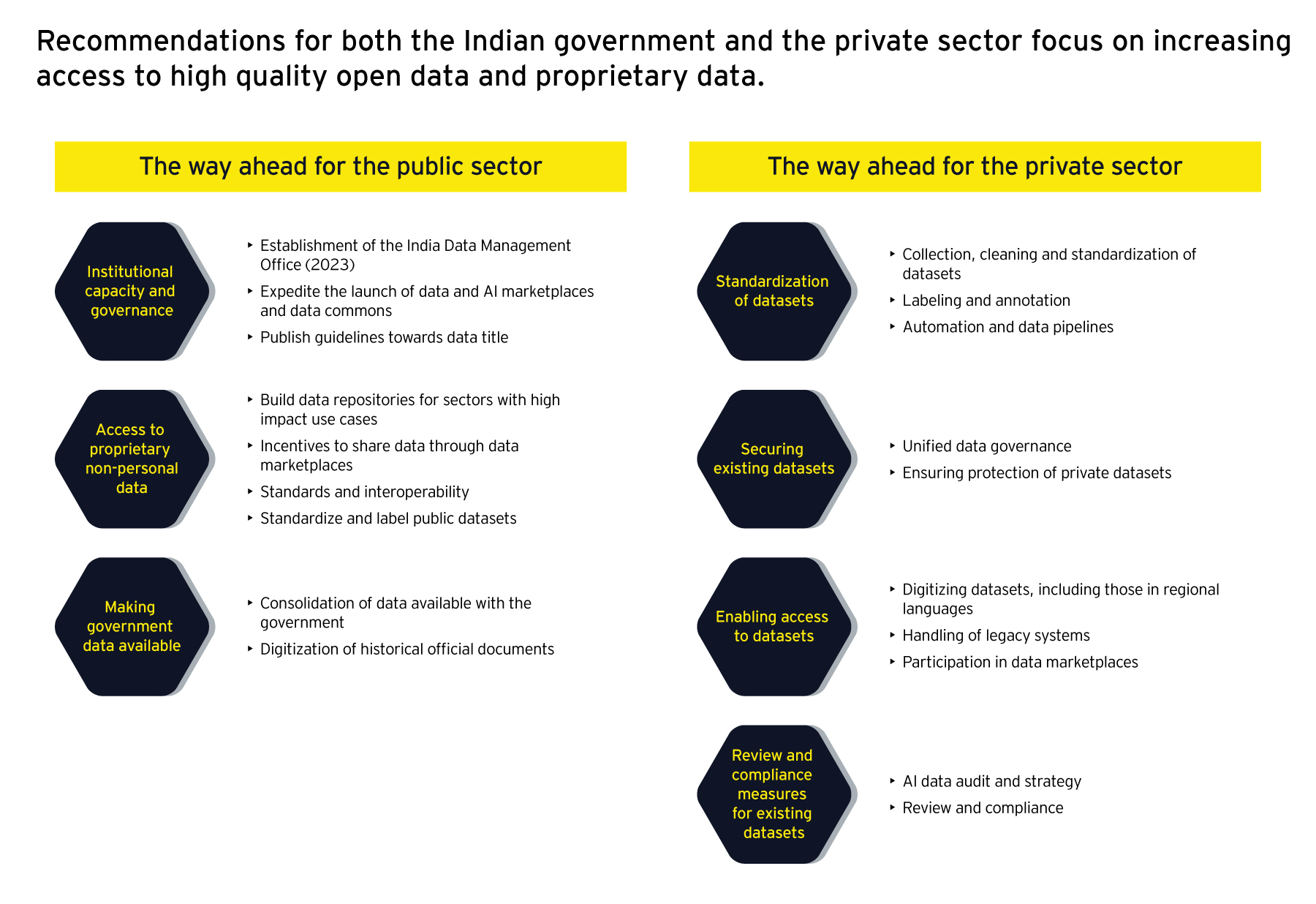Related content
Summary
AI's transformative impact on society hinges on data access, requiring open and proprietary data for advancing its development. Global approaches to data governance emphasize interoperability, data privacy and government data availability. While noting India's commitment to data access, further initiatives relating to proprietary data are essential. The recommendations aim to bolster AI innovation in India through greater access to Data. India’s AI technological sovereignty and economic competitiveness depends on access to updated high-quality datasets.







